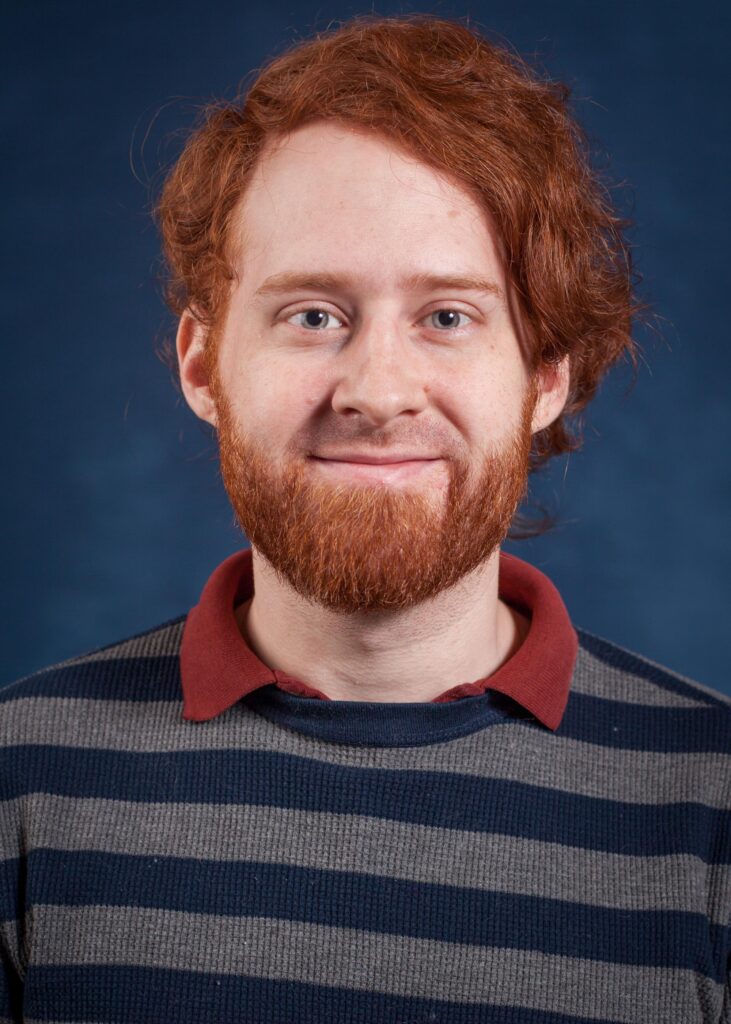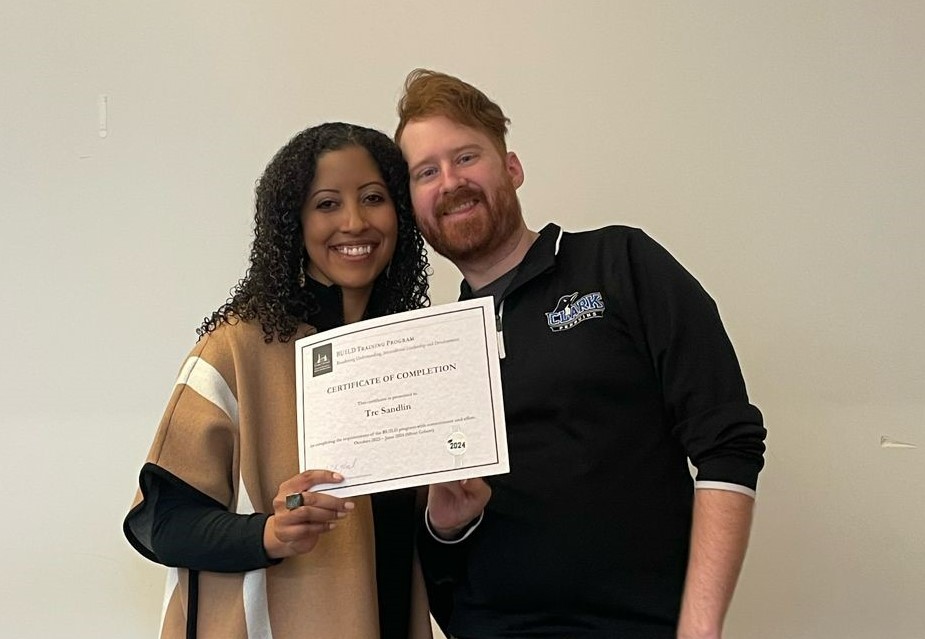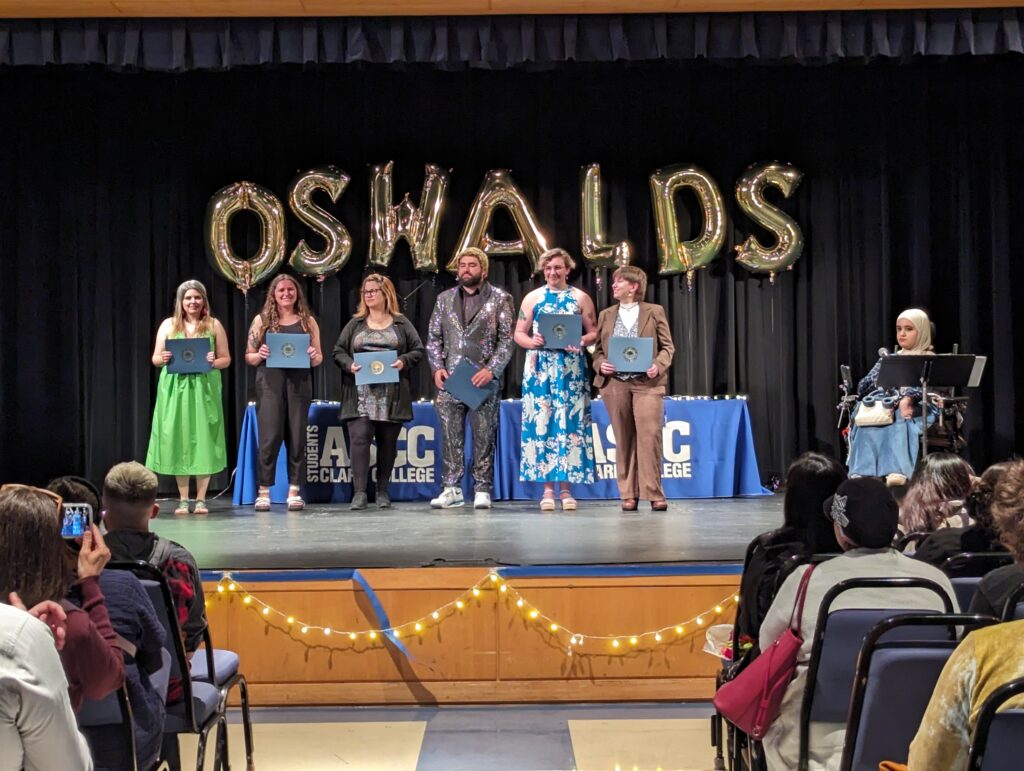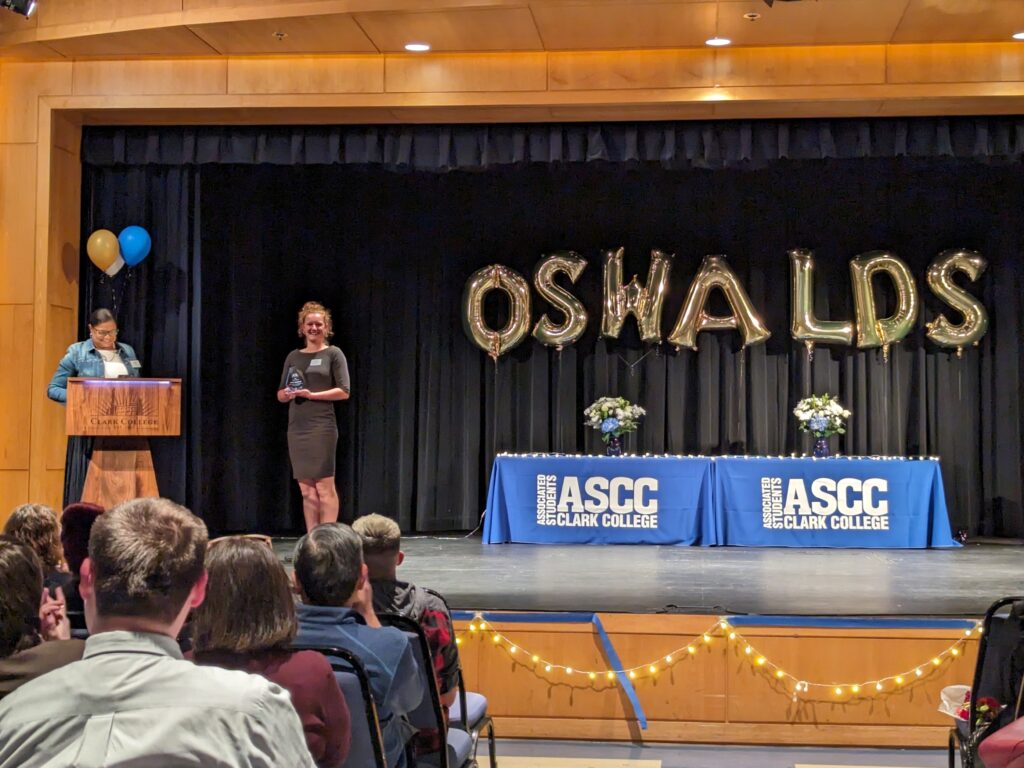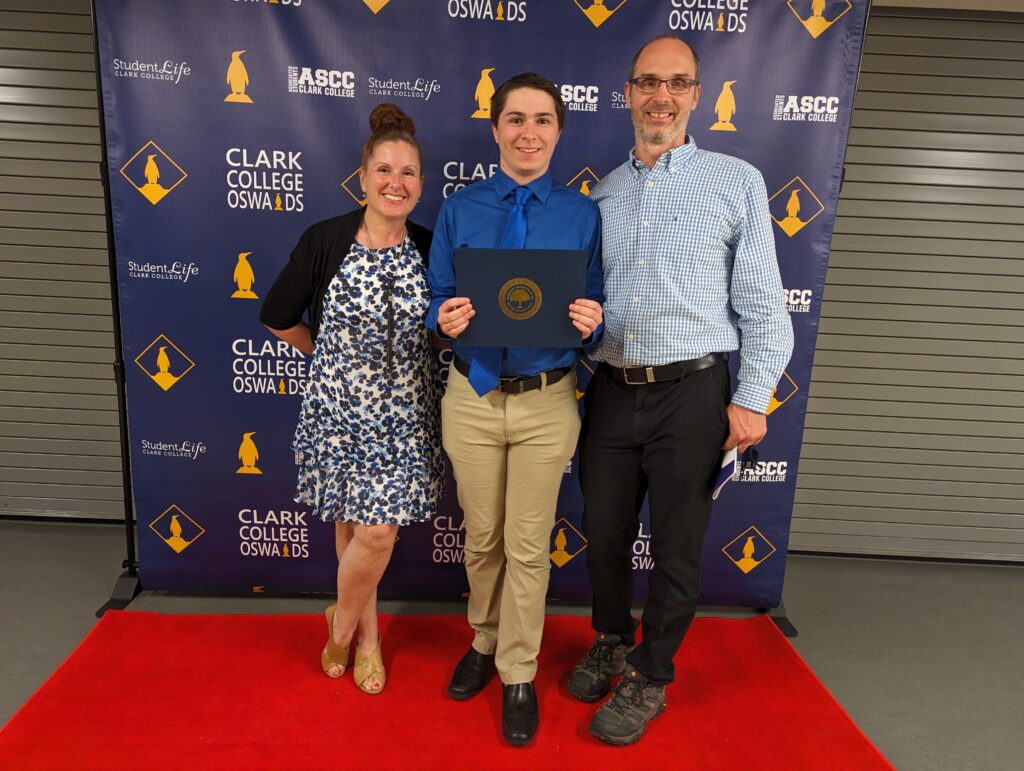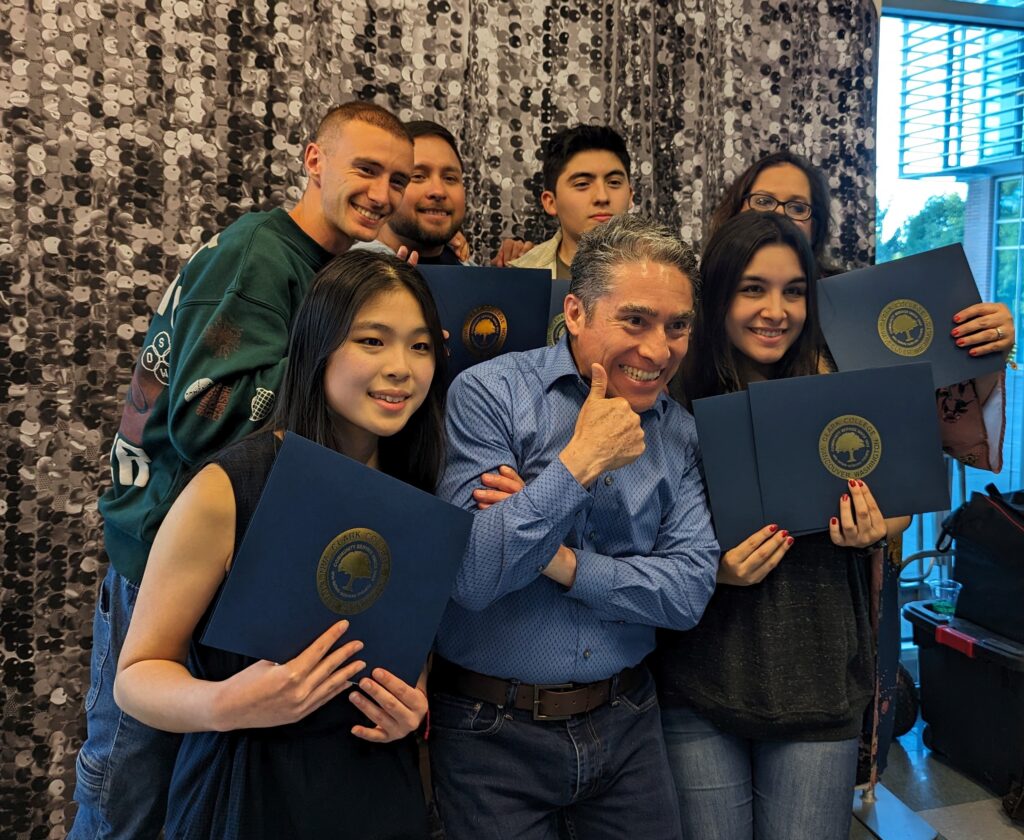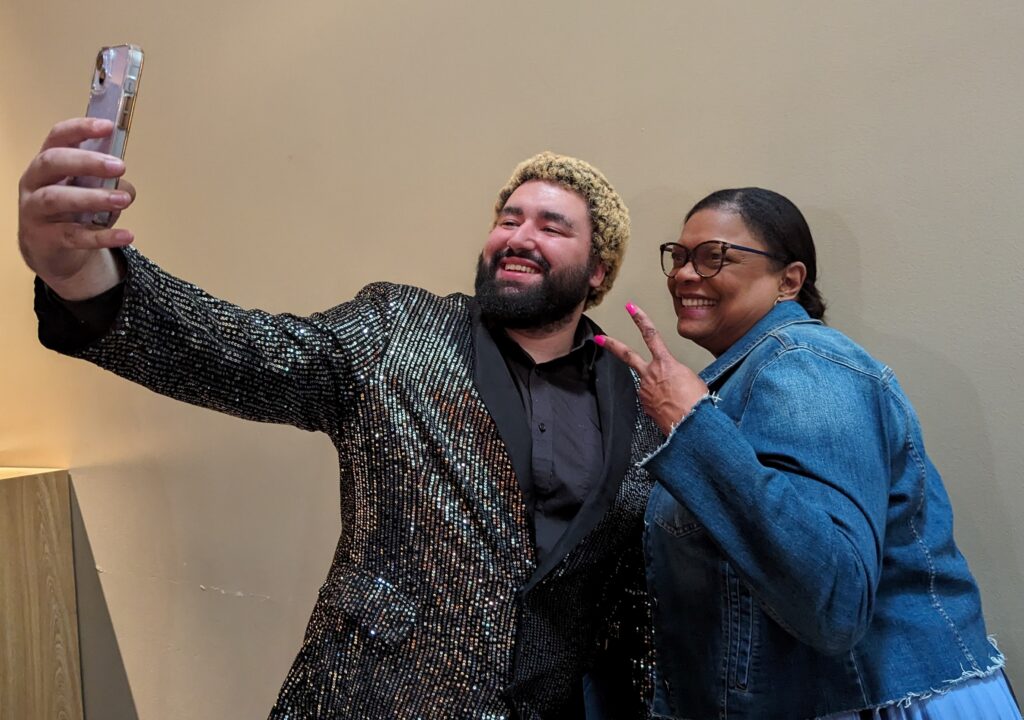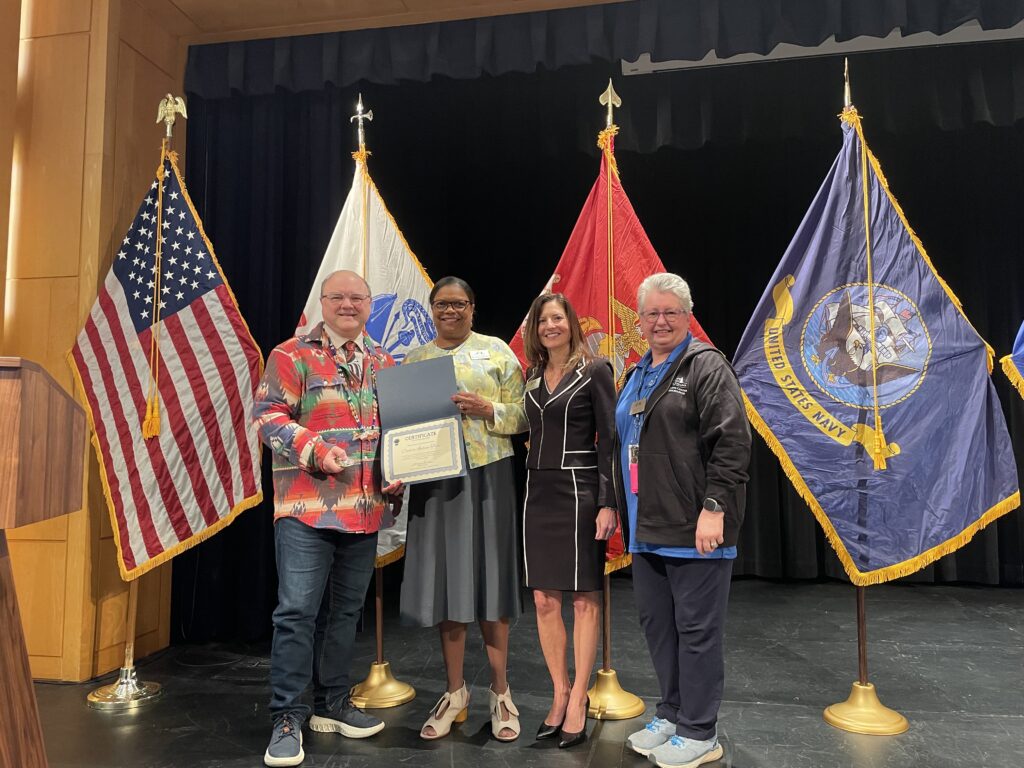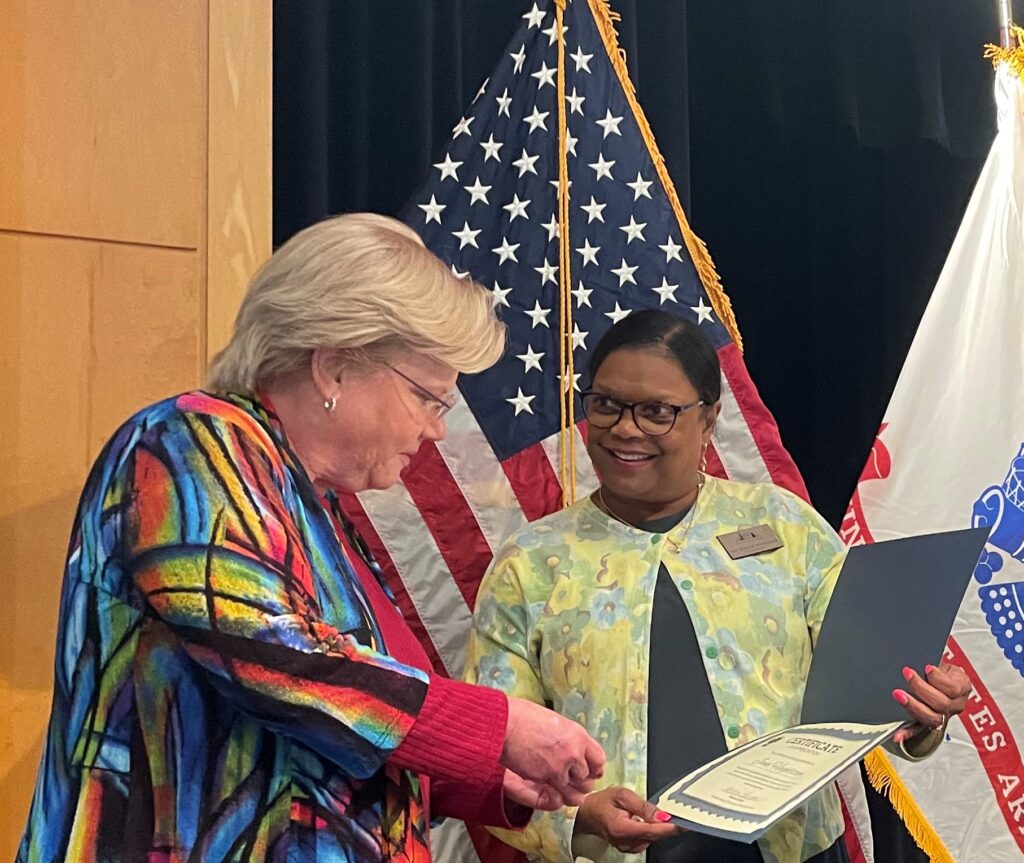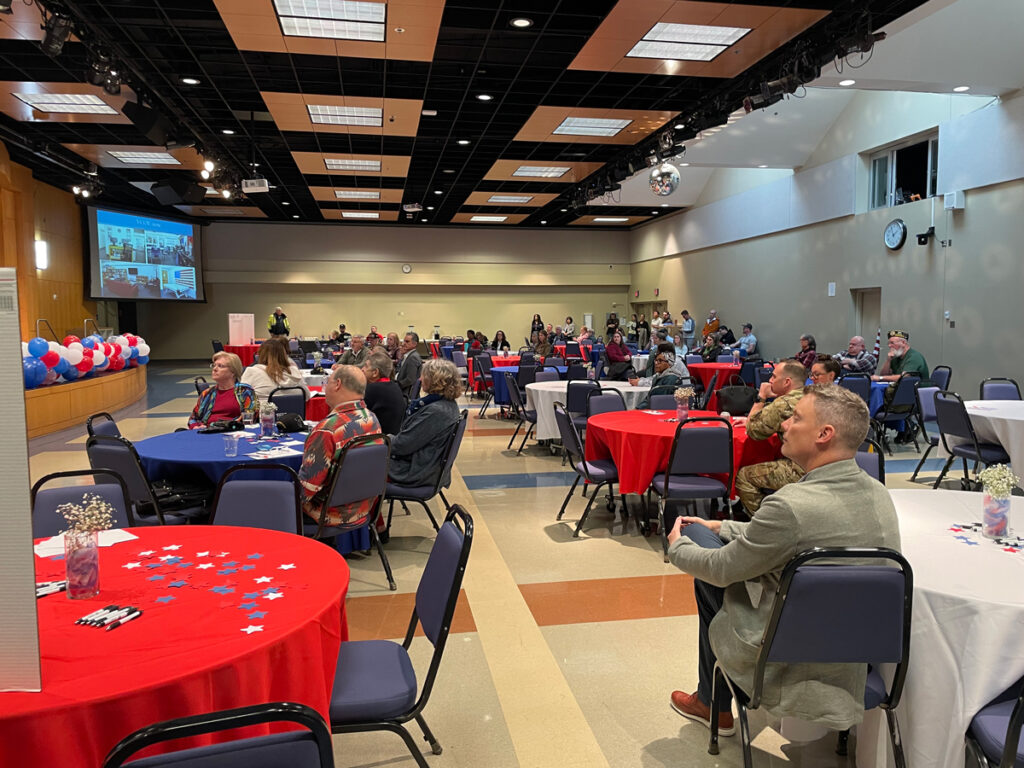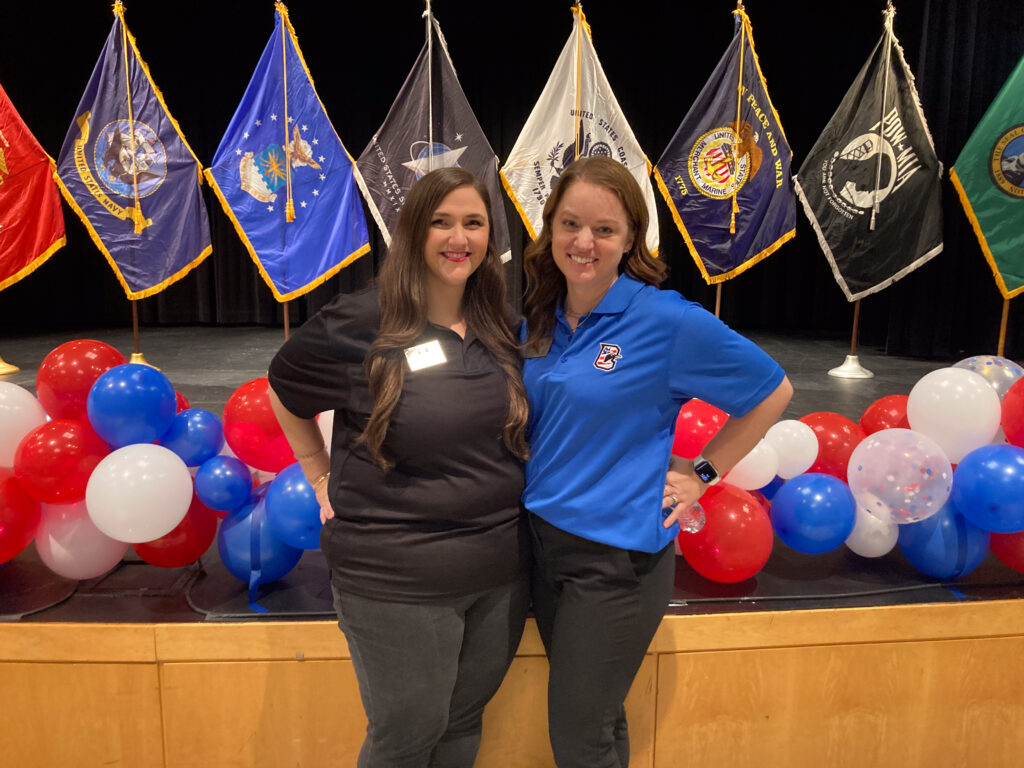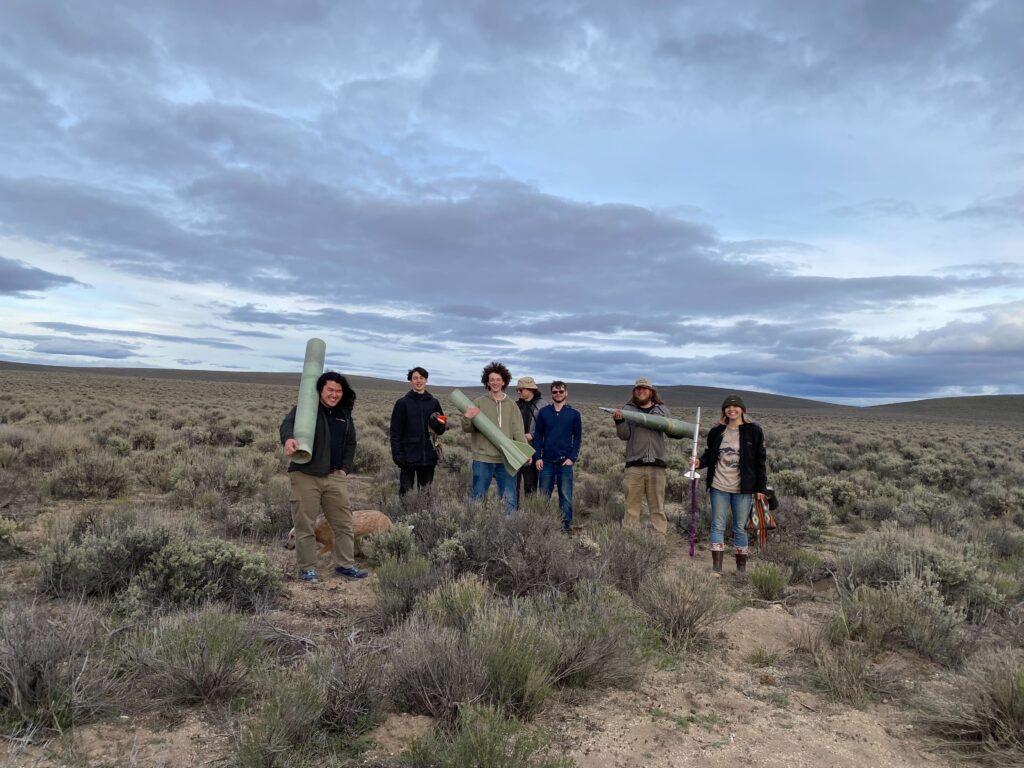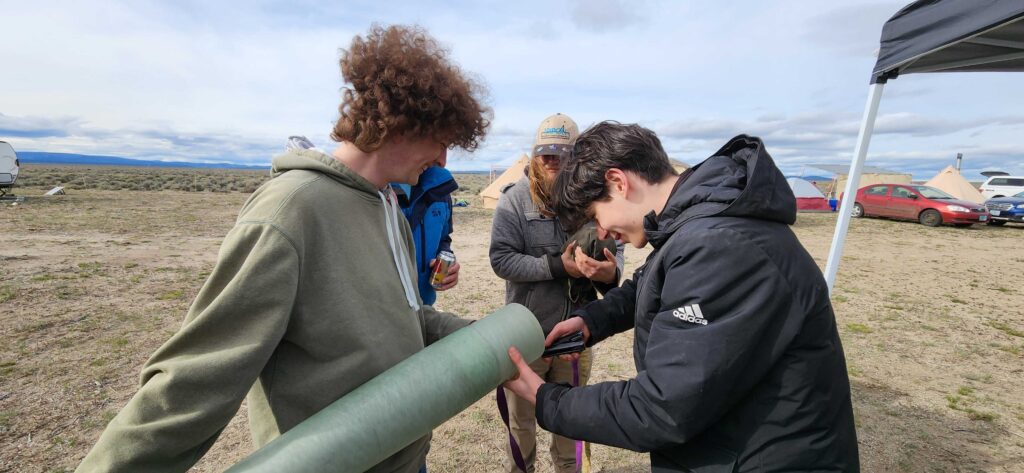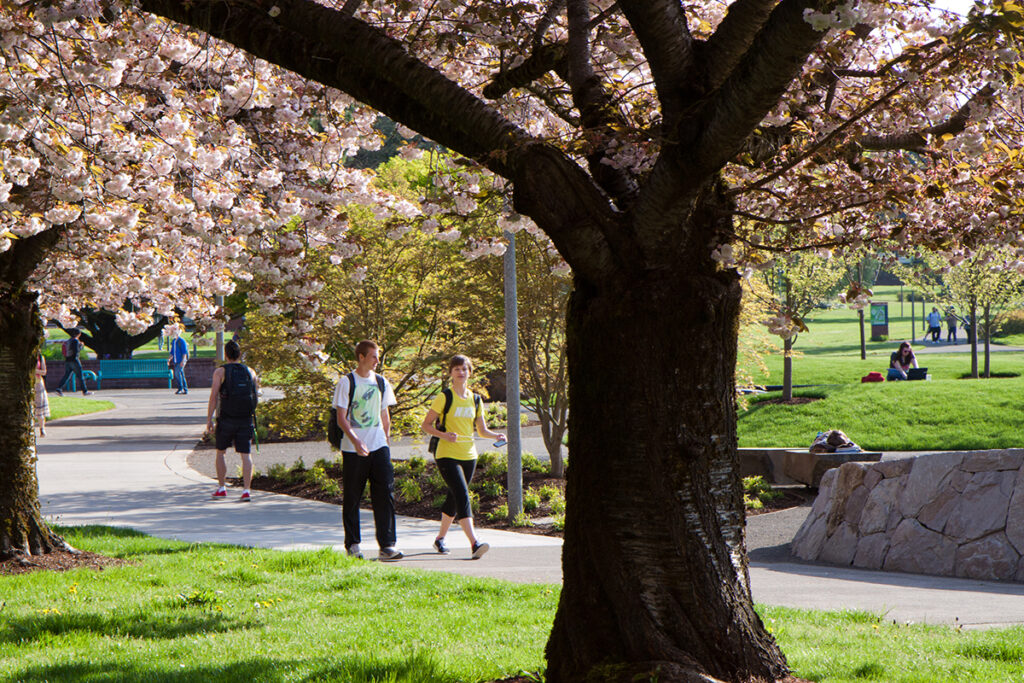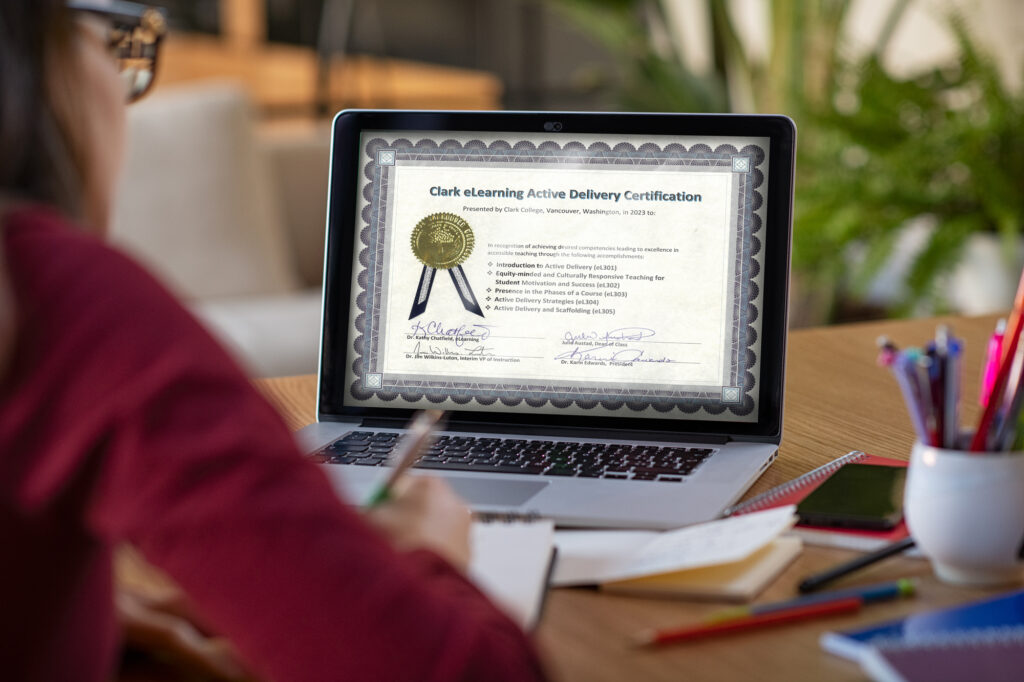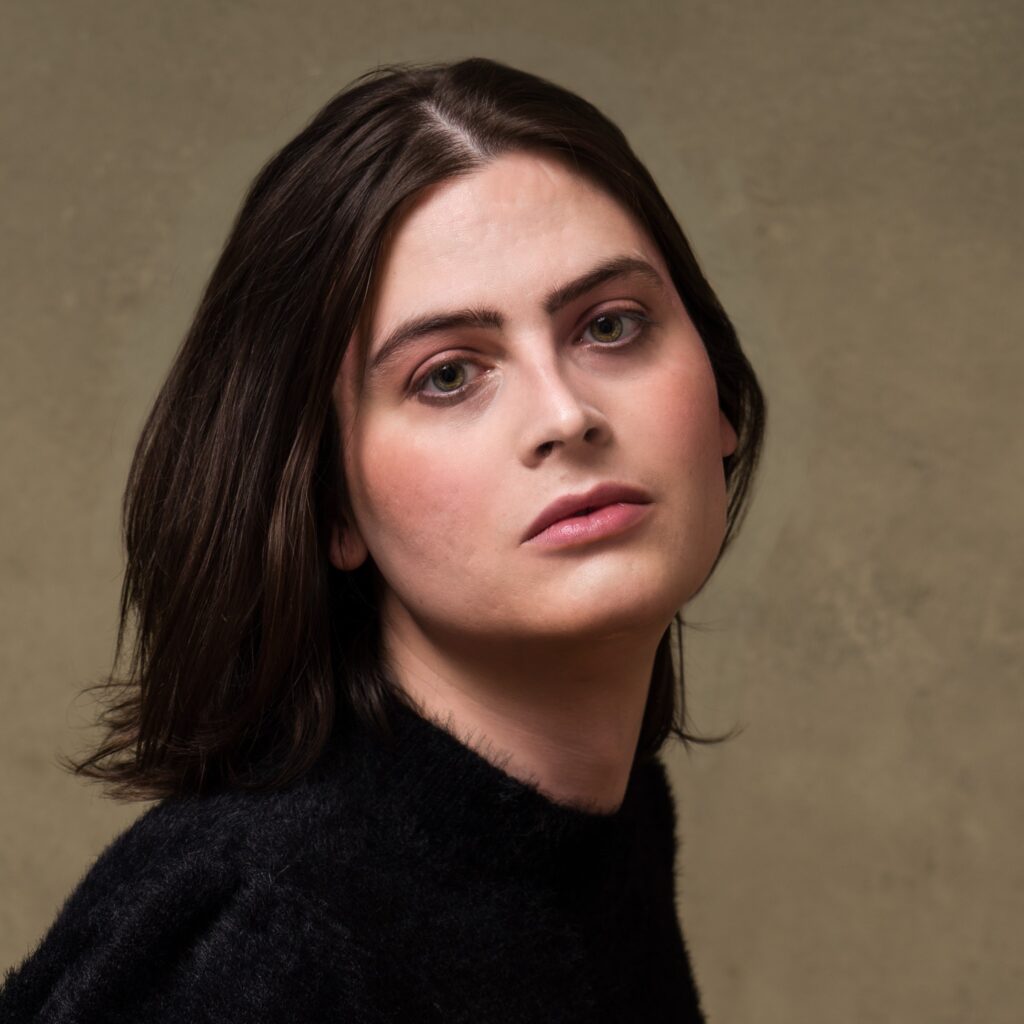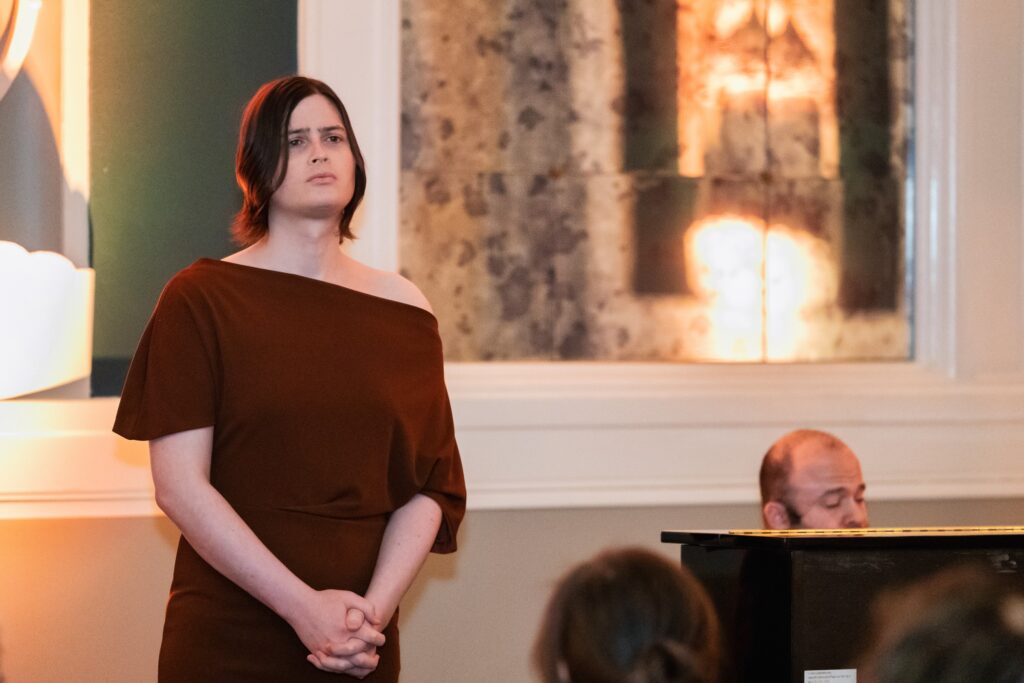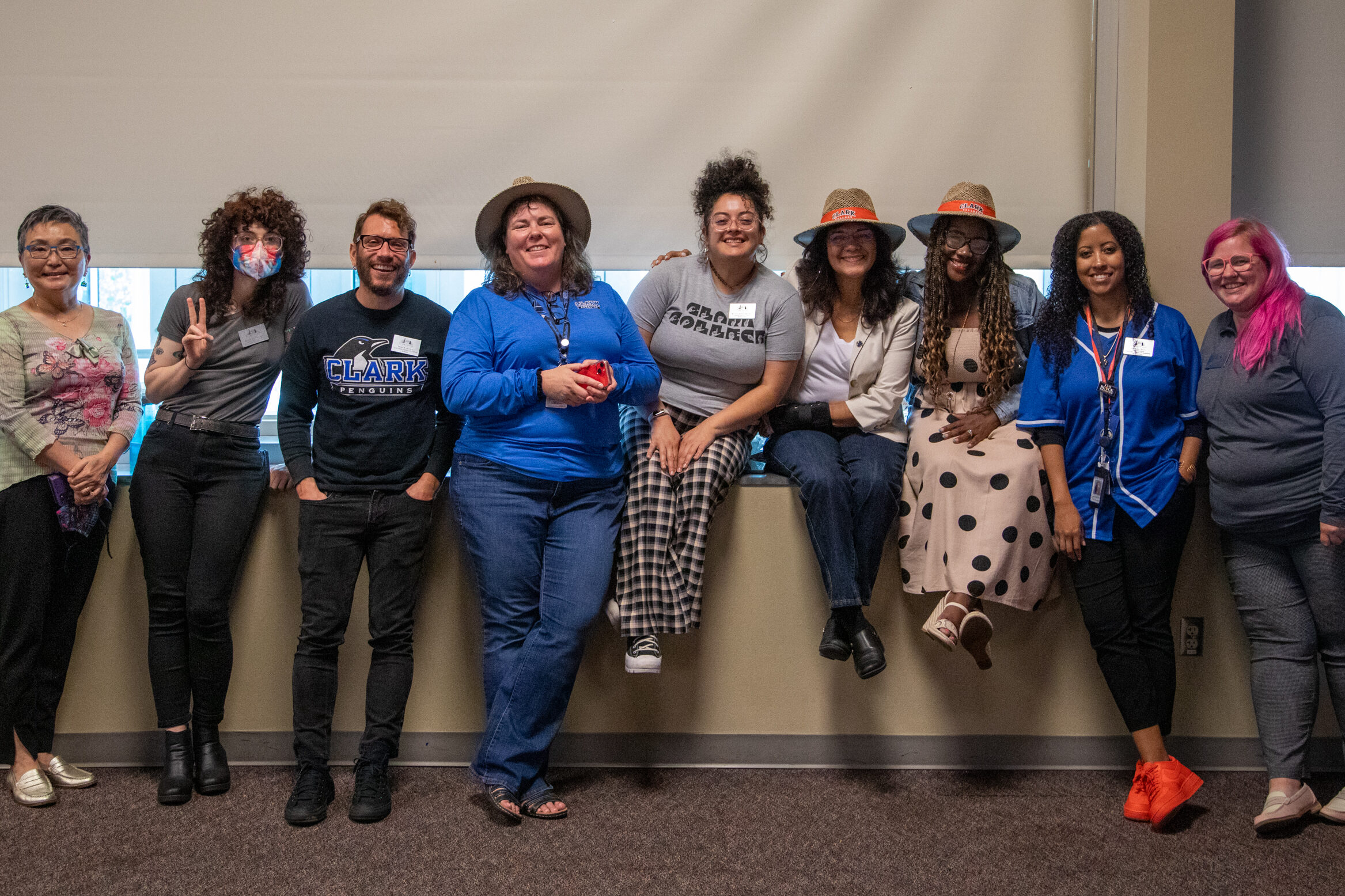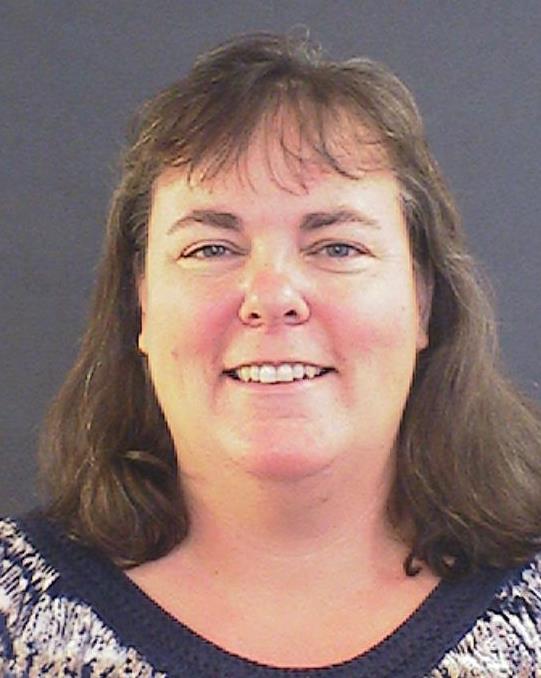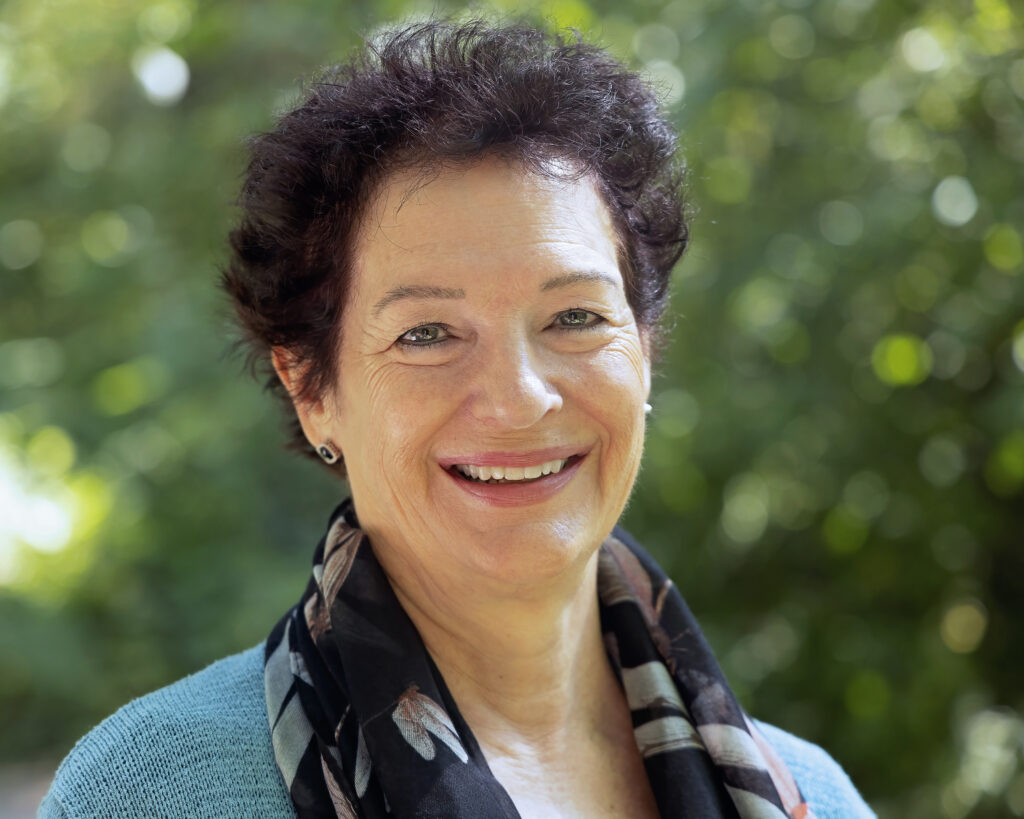Clark College’s 88th Commencement
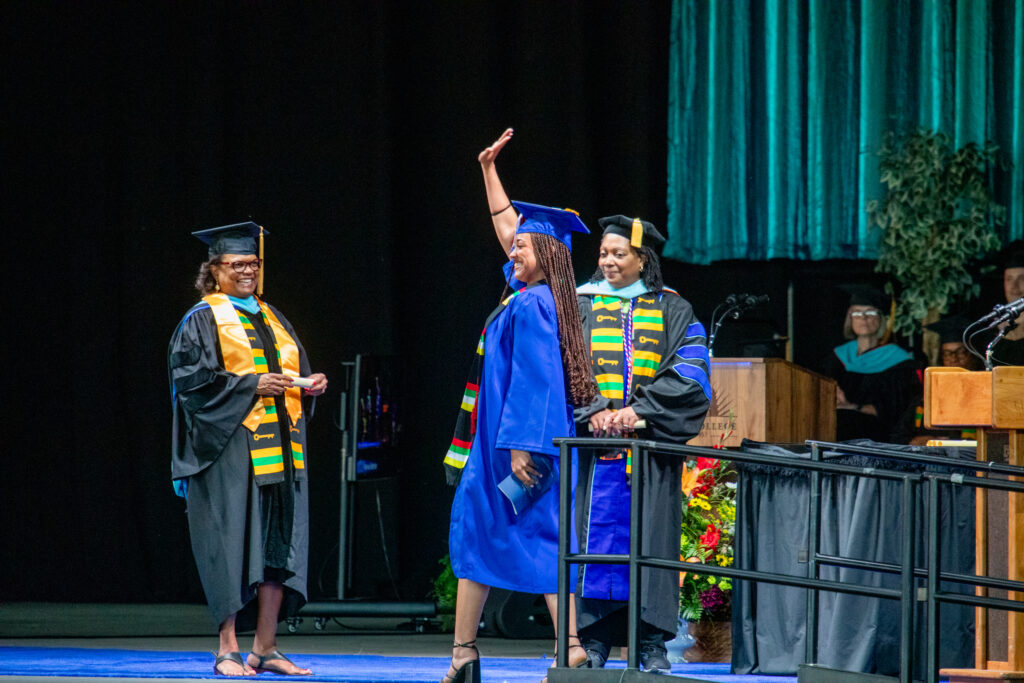
Clark College honored its 88th graduating class at the 2024 Clark College Commencement ceremony on Thursday evening, June 20, at the RV Inn Style Resorts Amphitheater. Over 640 graduates and their guests gathered with college faculty and staff to celebrate their achievements. This auspicious ceremony honored students graduating with their bachelor’s or associate degrees, and those earning certificates, high school diplomas, and/or GED completion.
2024 Commencement Highlights
Clark College conferred a total of 1,783 degrees and certificates on the next generation of our community’s workers, leaders, and scholars. This translates to the following:
- 1,193 Associate degrees including:
- 1,024 graduates earned direct transfer associate degrees to continue their education seamlessly at a four-year university
- 617 graduates completed their associate degree or certification in career-focused fields, ready for the workforce
- 96 Bachelor of Applied Science degrees in the fields of applied management, cybersecurity, dental hygiene and human services including:
- 5 graduates from the first cohort earning a Bachelor of Applied Science in Teacher Education
- 446 Running Start students who also are graduating from high school
- 431 certificates of proficiency, achievement and completion
- 63 graduates earned high school diplomas
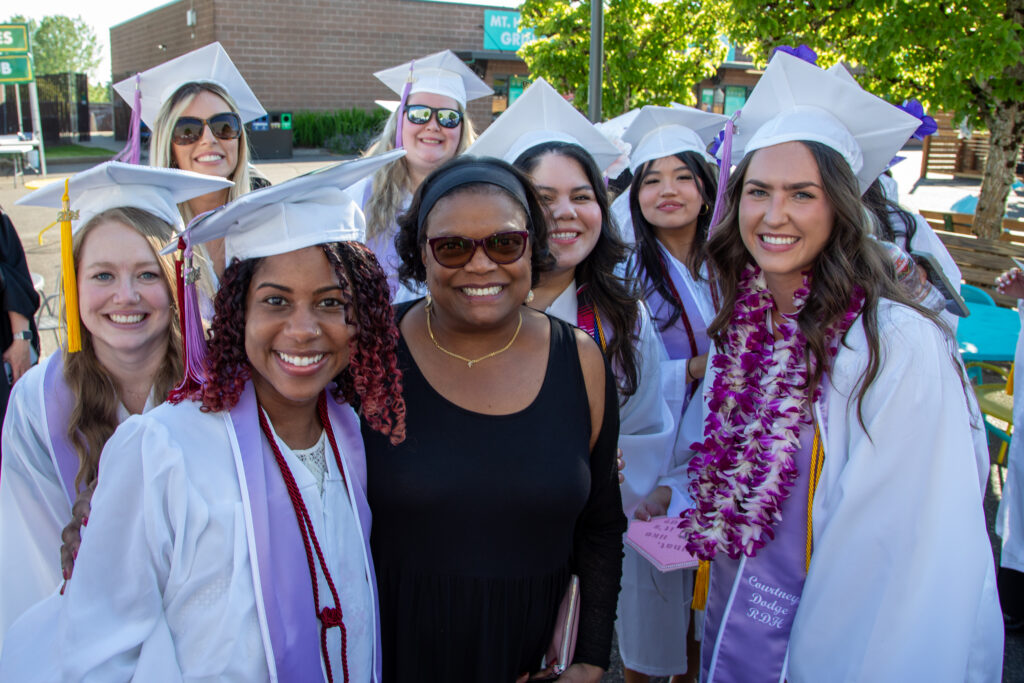
2024 Degrees and Certificates conferred included the:
- Bachelor of Applied Science degree;
- Associate in Arts degree;
- Associate in Fine Arts degree;
- Associate in Science degree;
- Associate in Applied Science degree;
- Associate in Applied Technology degree;
- Certificate of Proficiency;
- Certificate of Achievement;
- Certificate of Completion;
- High School Diploma; and
- General Educational Development (GED) Completion
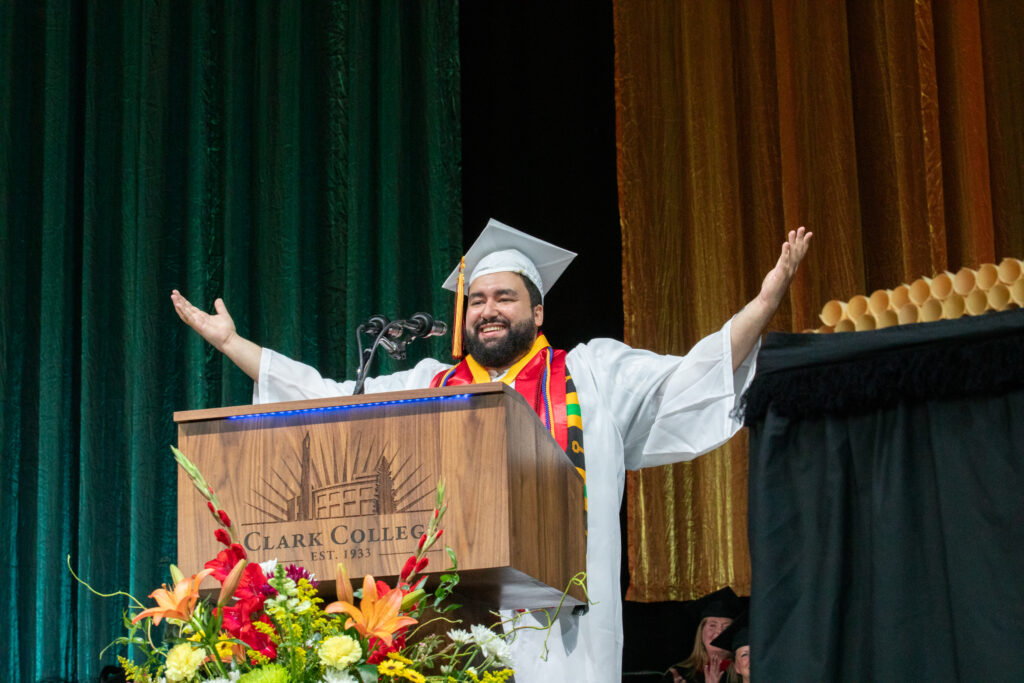
Speakers at the 2024 Commencement included:
- Clark College President Dr. Karin Edwards
- Clark College Board of Trustee President Cristhian Canseco Juarez, in both English and Spanish
- Graduating Student Ziyad El Amrani, Bachelor of Applied Science in Applied Management degree
- CCAHE Faculty Union President and Professor of Communication Studies Suzanne Southerland
Clark President Dr. Karin Edwards touted recent Clark successes: enrollment has increased 10%, more in-person classes are being offered, student engagement has increased, and its new campus at Boschma Farms in Ridgefield is nearing completion.
After sharing the inspiring stories of three graduating students, Dr. Edwards said, “These are just three examples of the transformational power of a community college education. Graduates, whatever path your future takes you, the return on your investment is invaluable. You believed in yourself and invested in bettering yourself. The result is that everyone benefits. You, your family, your community, and the world benefit by having your well-educated mind at work. We congratulate and applaud you for your dedication, your hard work, and your sacrifice.”
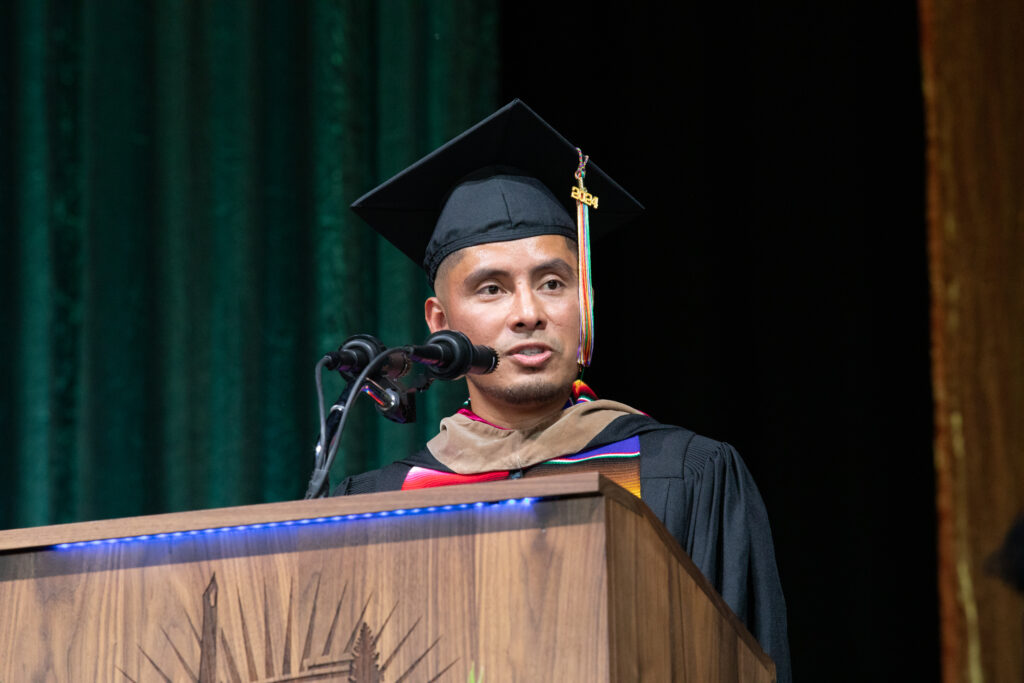
Trustee Cristhian Canseco Juarez (pictured above) followed with these words, “What an accomplishment! Through your perseverance and hard work, you did it! Congratulations!” He added, “Many of you, like me, are the first person in your family to graduate from college. Did you know that about 45% of Clark students are the first in their family to attend college? You have sacrificed to make a difference for your family and your future… Penguins Class of 2024, tonight you begin an exciting new journey. Pursue your dreams, reach toward your goals—and make the world a better place. All of Penguin Nation believes in you.”
Transformed Lives
Before the commencement ceremony, students waiting outside the amphitheater shared their stories that spoke to the transformational power of education.
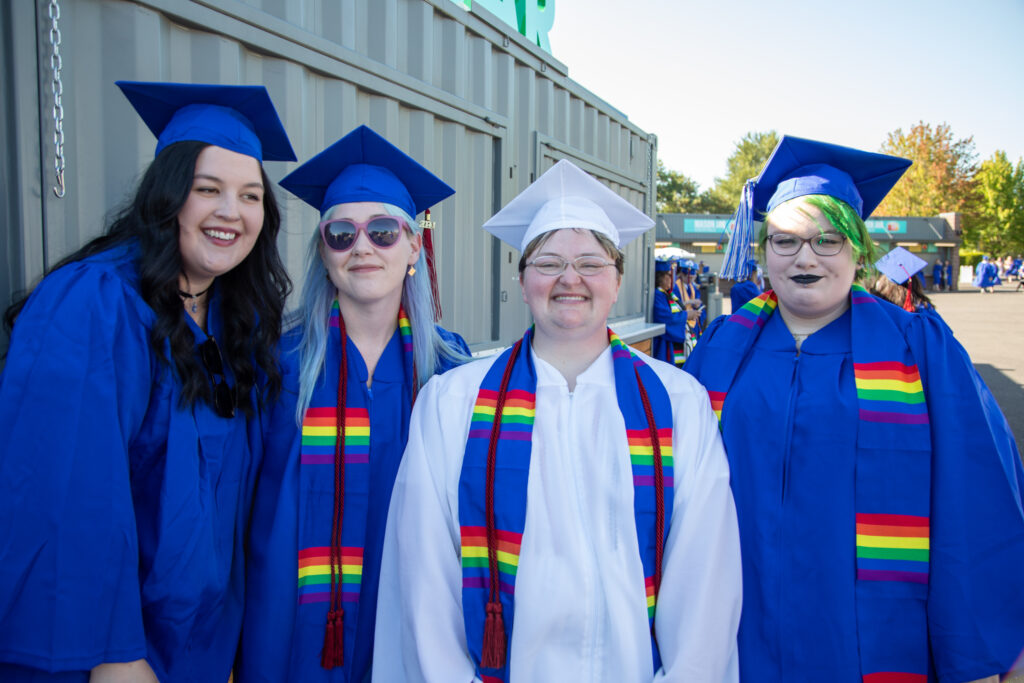
Clark Libraries employees earn degrees. Amanda Brown (pictured above third from the left in white robe), Bachelor of Applied Science in Applied Management (BASAM): Brown is the program manager in Clark Libraries. She realized she would have more opportunities with a bachelor’s degree, so she worked full time while attending Clark full time and achieved her goal. Amanda stands with fellow Clark graduates Courtney Cichosz, a former Clark Libraries student employee, and current Clark Libraries employees Shay Walter and Bridgit Callaway.
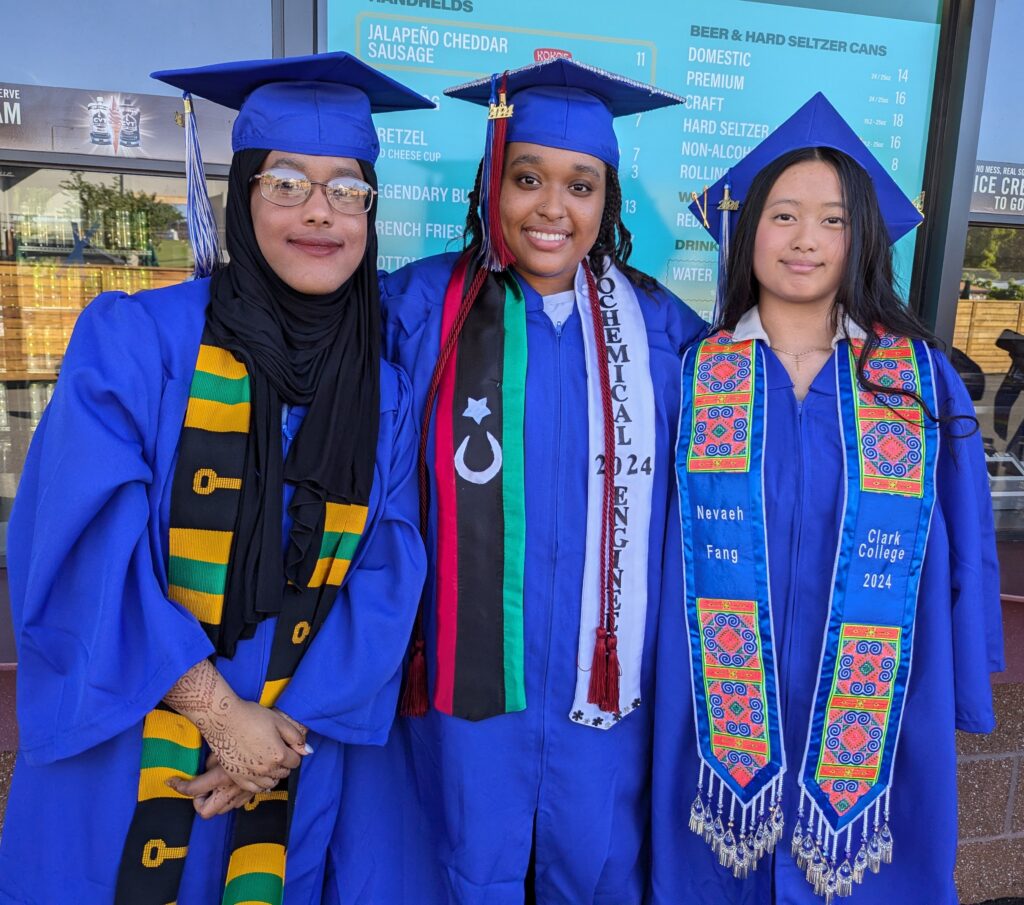
A trio of Running Start students Lemman Gurre, Aalaa Hassan, and Nevaeh Fang earned direct transfer associate degrees and are headed to University of Washington and Washington State University Vancouver to pursue bachelor’s degrees. Gurre plans to become a pharmacist; Hassan, a biomedical engineer. Fang is undecided.
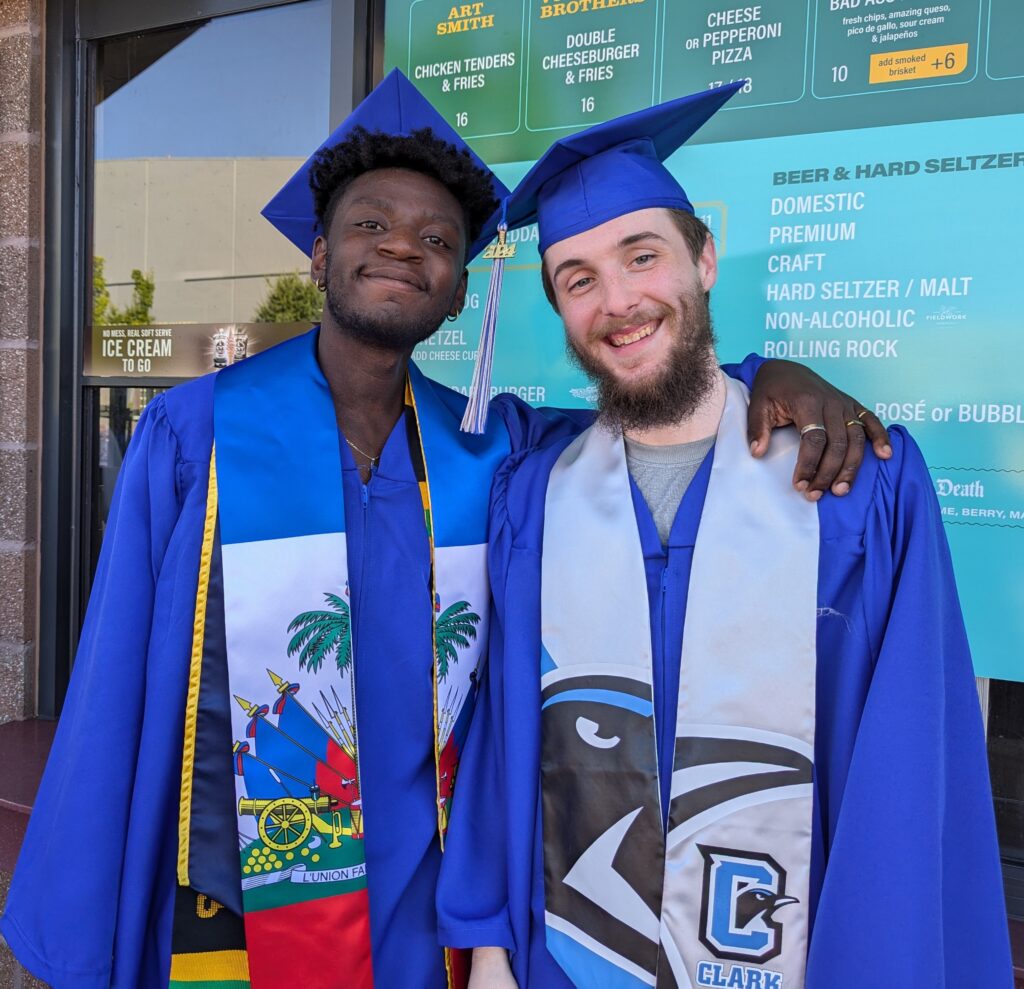
Slade Samson Griffith, a first-generation college graduate who was adopted from Haiti, earned a direct transfer associate degree. He has joined the U.S. Navy and plans to continue his education after he has completed his military service.
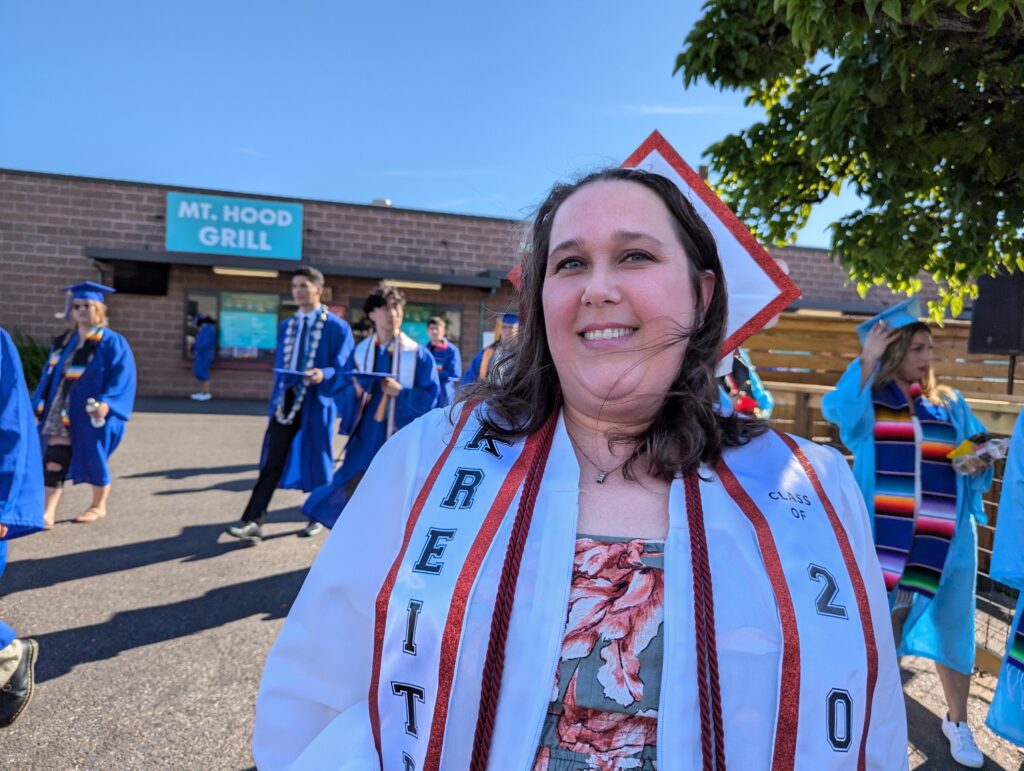
Rachel Kreitel, (pictured above) had not completed high school, but 20 years later, she enrolled at Clark and earned her GED and then an associate degree in Nursing. She realized she wanted to pursue a career in human resources, so returned to Clark again to earn a Bachelor of Applied Science in Applied Management.
Life got in the way for Elizabeth Rivera, and she hadn’t had an opportunity to graduate from high school. She has four children, ages 6 to 18, and has worked full time at an assembly job for 16 years. Rivera wants to move into a leadership position, so she enrolled in Clark’s Transitional Studies high school plus program full time while working 12-hour shifts Friday, Saturday and Sunday—and caring for her family. Now she plans to pursue a project management position and is considering returning to Clark to earn an associate’s degree.
The following were recognized during commencement
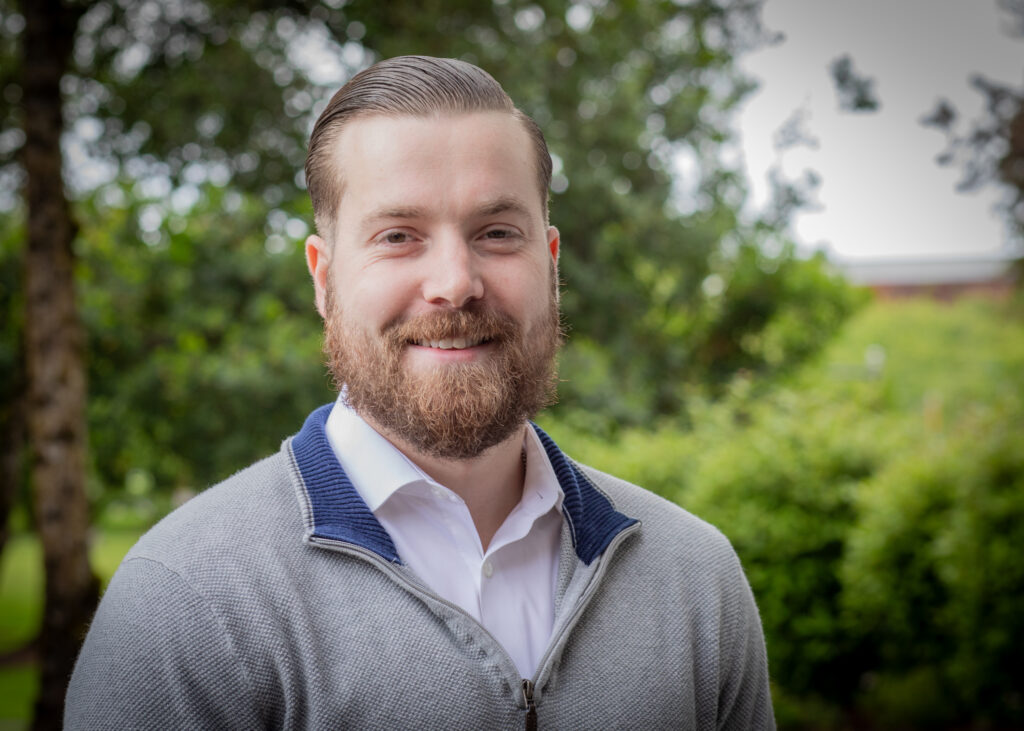
2024 Community College Presidents’ Award in honor of Val Ogden was received by Graduate Simon Kirpa (pictured above). This annual scholarship is awarded to a Clark College graduate who is transferring to Washington State University Vancouver. The recipient must demonstrate leadership potential, a commitment to community service, and academic achievement.
Kirpa joined the U.S. Army and served as a medic in Iraq, where he demonstrated his leadership skills and his ability to put patients at ease. He chose to continue pursuing medicine after completing his military service and applied to Clark’s nursing program. He completed this challenging program while balancing being a husband and father, caring for his mother, and volunteering weekly at his church to offer free meals to those in need. Despite his responsibilities, he consistently completed high-caliber work in his classes, performed his duties with diligence, and provided excellent care in hospital settings. At WSU-Vancouver, Kirpa will study to become an Advanced Practice Nurse Practitioner and specialize in family medicine.
Thanks to the generosity of Clark College Foundation, the Presidential Scholarship taskforce selected two other recipients of a $1,000 scholarship each:
- Alexandra Rose, associate of arts
- Alita Sundberg
Phi Theta Kappa (PTK) Honor Society for two-year colleges selected the following graduating students for its All-Washington Academic Team, based on academic excellence and community service:
- Addison Johnson, direct transfer associate degree in Bioengineering
- Lisa Segretto, direct transfer associate degree in Psychology
- Ethan Mahan, associate in applied technology degree in Medical Assisting; additional certification in Phlebotomy
Faculty and Staff Awards were also recognized during commencement
2024 Exceptional Faculty Award recipients:
- Halina Brant-Zawadzki, Nursing
- Sarah Luther, Mathematics
- Sarah Blanchette, Human Services
- Tanya Diaz-Kozlowski, Women’s Studies
- Rebecca Engel, American Sign Language
- Catherine Johnston, English as a Second Language
2024 Exceptional Classified Staff Award recipients:
- Cheryl Davenport, Collections and Specialist, Library
- Jennifer Lea, Program Specialist, Business department
2024 Exceptional Administrative Exempt Award recipient:
- Vanessa Watkins, Director of Entry Services
2024 Lora Whitfield Social Equity Award:
- Ezekial Wells, Program Specialist 3, Workforce Education Services
View more photos in the Flickr Album https://flic.kr/s/aHBqjBw9HL
